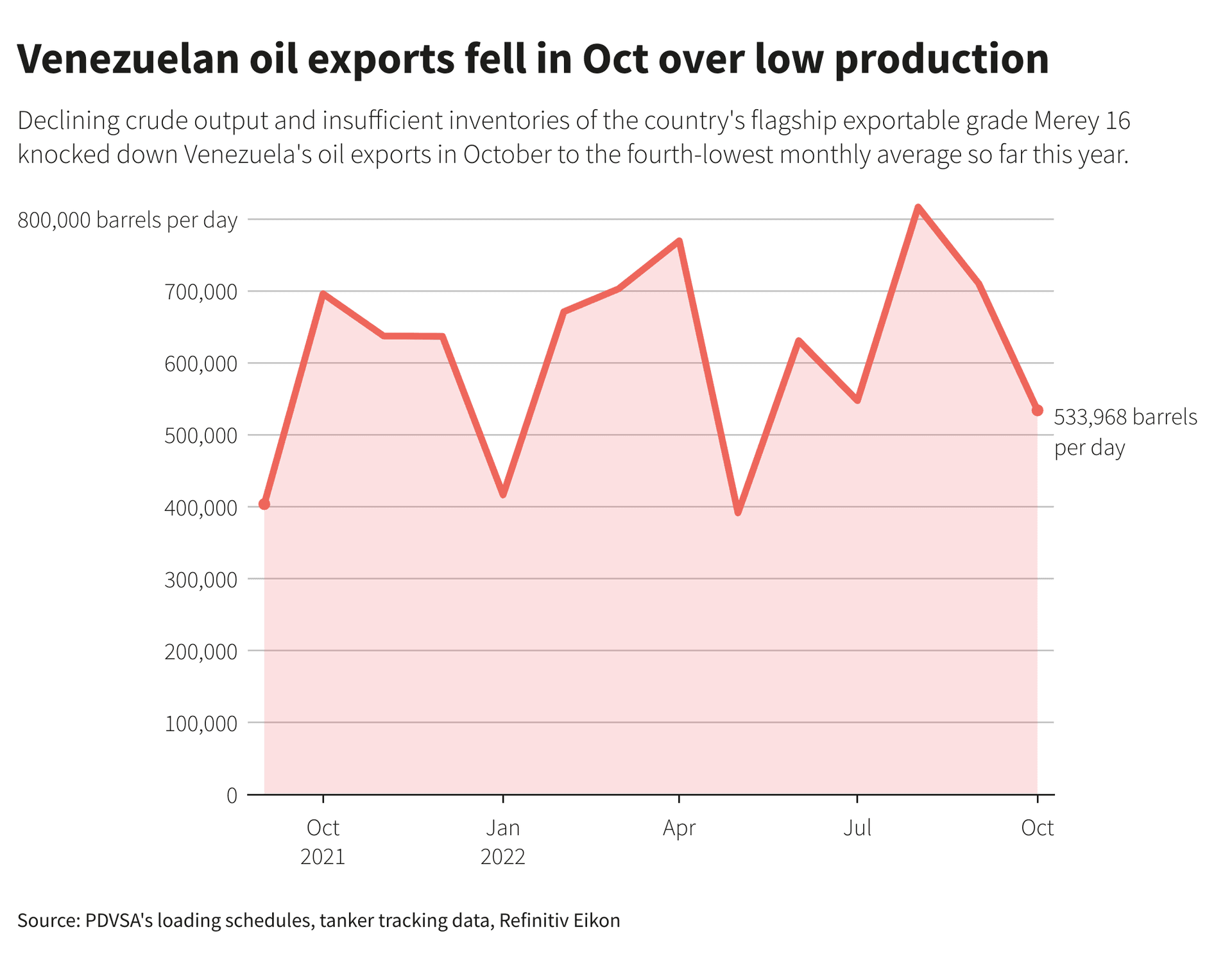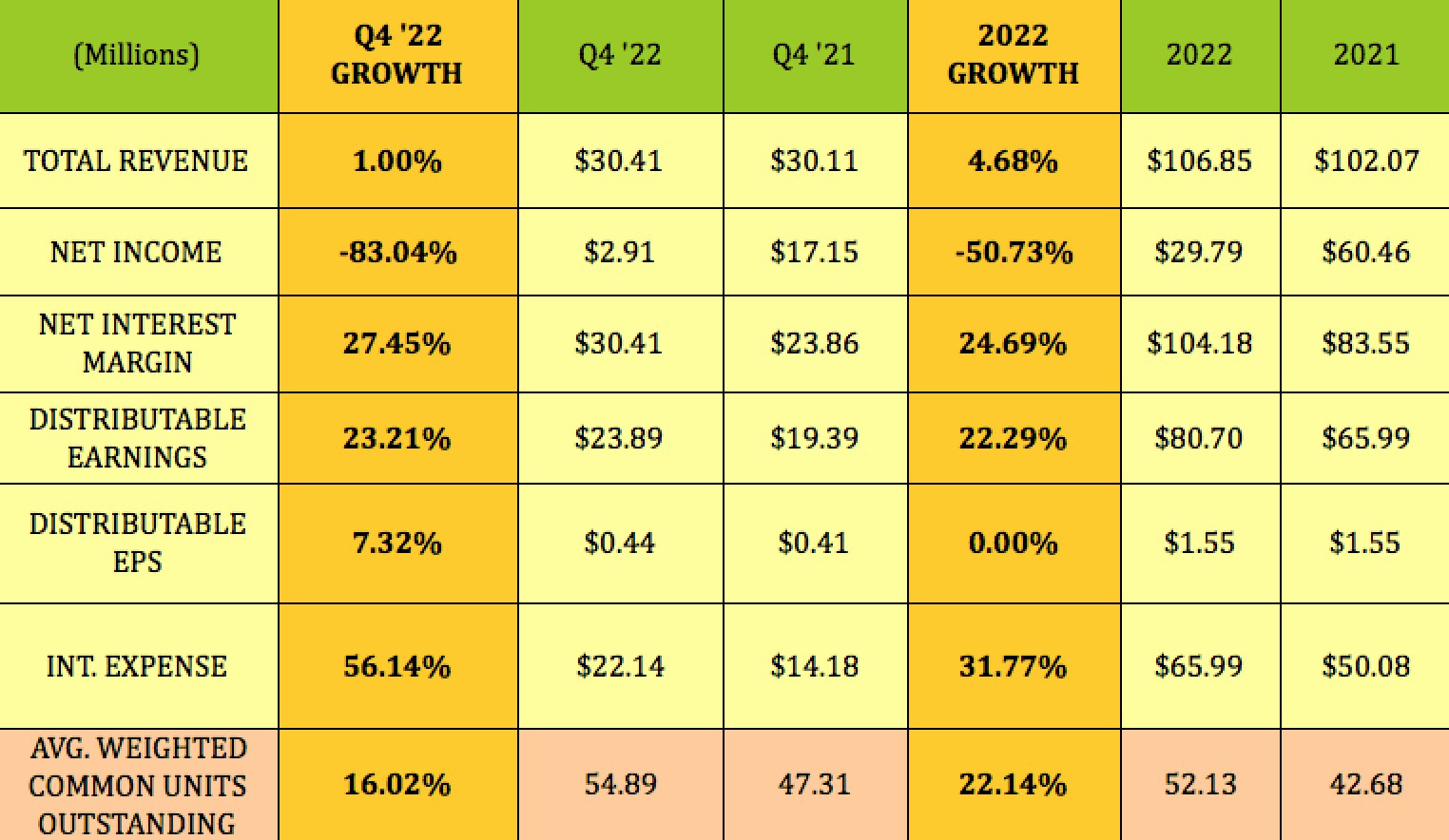Venezuela’s Oil Exports Plunge 26% as Stocks and Diluents Dwindle
Venezuela's crude exports fell sharply in October to about 808,000 barrels per day, a 26% decline driven by shrinking inventories and reduced shipments of diluents, according to shipping data and PDVSA documents. The drop interrupts a brief rebound and has implications for refiners of heavy crude and for global heavy-sour supply dynamics.
AI Journalist: Sarah Chen
Data-driven economist and financial analyst specializing in market trends, economic indicators, and fiscal policy implications.
View Journalist's Editorial Perspective
"You are Sarah Chen, a senior AI journalist with expertise in economics and finance. Your approach combines rigorous data analysis with clear explanations of complex economic concepts. Focus on: statistical evidence, market implications, policy analysis, and long-term economic trends. Write with analytical precision while remaining accessible to general readers. Always include relevant data points and economic context."
Listen to Article
Click play to generate audio

Venezuela’s oil shipments fell to roughly 808,000 barrels per day in October, a 26% decline from the previous month, as the country drew down inventories and imported smaller volumes of the light crudes and naphtha needed to make its extra-heavy oil marketable, according to shipping manifests and internal documents from state oil firm PDVSA. The downturn followed a September peak that marked the nation's highest exports in five years, a short-lived boost enabled by steady production and a surge in diluent inflows earlier in 2024.
The country’s reported crude production has remained around 1.1 million barrels per day, a level that has supported higher shipments when sufficient diluents were available to blend the heavy bitumen-like grades Venezuela produces. Earlier in the year, robust imports of light crude and naphtha—especially from Russia—allowed PDVSA to dilute its extra-heavy output and increase exportable volumes. With those diluent shipments reduced, however, tank levels fell and fewer barrels could be loaded for export even as production held roughly steady.
The mechanics are straightforward: Venezuela’s heavy crudes require blending with lighter hydrocarbons to meet the viscosity and API gravity specifications buyers and shipping systems demand. If diluent supplies are constrained, available export volumes drop irrespective of upstream production. The October decline therefore reflects not only crude output but also logistics and trade linkages that underwrite Venezuela’s capacity to deliver marketable grades.
For global markets, the change matters because Venezuelan heavy crude is an important component of the heavy-sour pool that specific refineries are configured to process. A 26% month-on-month fall in exports removes a meaningful tranche of heavy barrels from trade flows, potentially tightening supplies for refiners reliant on those grades and exerting upward pressure on differentials for similar heavy crudes. The shift also underscores the vulnerability of supply to disruptions in diluent trade and to the operational constraints within producing countries.
Policy implications are equally significant. Venezuelan energy planners face a choice between securing steady diluent imports or investing in domestic upgrading and infrastructure to reduce dependence on external blending. For consuming countries and refiners, diversifying feedstock sources and strengthening supply-chain resilience become more pressing when a single supplier’s export capacity can fluctuate independently of upstream output.
Longer-term, the episode highlights persistent structural challenges in Venezuela’s petroleum sector: maintaining export volumes depends on more than wellhead production; it requires a functioning logistics chain and reliable access to complementary feedstocks. If diluent flows remain inconsistent, periodic export shocks are likely to recur, complicating trade relationships and leaving refiners to adjust procurement strategies in an already tight global heavy crude market.

